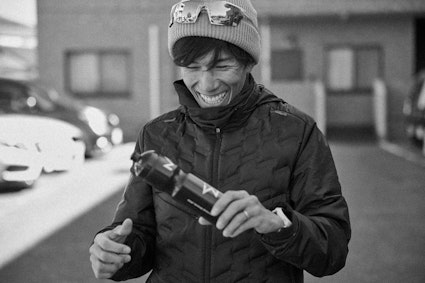
The selfless champion | A Kengo Suzuki story
After a sixteen-year drought Japanese men’s marathoning entered a new
era in 2018 when its national record fell. Just 25, at the 2021 Lake
Biwa Marathon Kengo Suzuki followed the architects of that revolution,
Yuta Shitara and Suguru Osako, with the fastest time ever run by an
athlete born outside Africa, 2:04:56. After only three years it was
already a changing of the guard, the dawn of the next generation after
Shitara and Osako. A day when the peak of the marathon world came back
into the light of the rising sun.
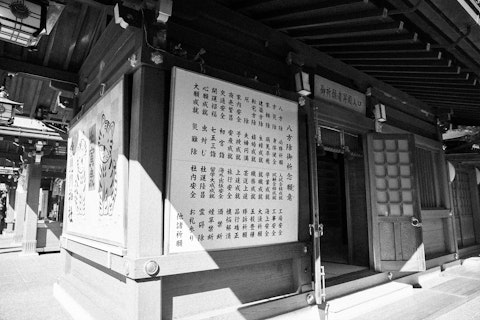
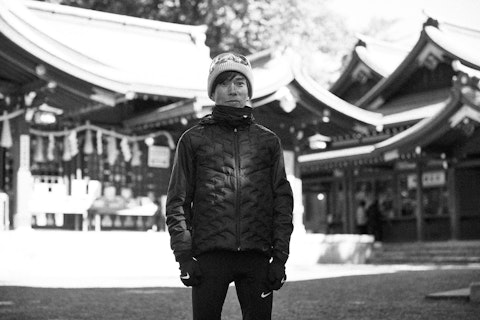
Ten days out from this year’s Tokyo Marathon, his training plan grants Suzuki an easy 16 km jog. Every contour of the muscles in his legs stands out with the lean definition of peak fitness as he glides along the riverside path that is one of his regular spots.
“He’ll run too much if you let him do his own thing.” Naoki Mishiro, coach at the Fujitsu men’s corporate track and field team, nods towards Suzuki. “If nobody stops him he’ll lose himself in the run and just keep going. These days there aren’t many like him.” Suzuki laughs when he hears this. “Maybe it’s just because I simply love to run.”
“He’ll run too much if you let him do his own thing.”
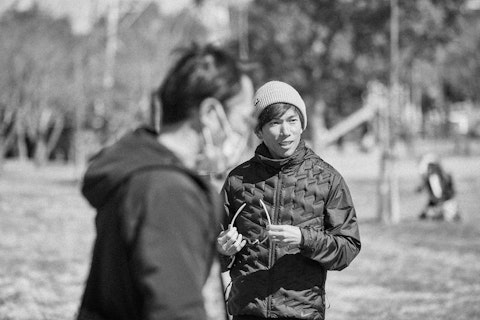
Running came to Suzuki when he was 11. His father, a former athlete, suggested that he join a local club. As he stayed with it through junior high school and high school he improved. He wasn’t a national-level talent like Osako had already been at that age, but even so eyes that could see what they were really looking at started to turn in his direction.
“I’ve always just focused on the race that’s right there ahead of me, but it feels like as I’ve been doing that, the level I’m at has just been creeping up gradually on its own. Even when I went to university in order to run ekidens, I was only thinking about doing it until I graduated.”
At that point Suzuki had a vague image of a future in which he’d go back home after graduating and start working. But with Hakone Ekiden success came a total reworking of that vision. Hakone is the dream that drives collegiate men’s running. Over half the country watches some of the two-day live broadcast, and an hour of glory there can transform a young athlete into a national hero.
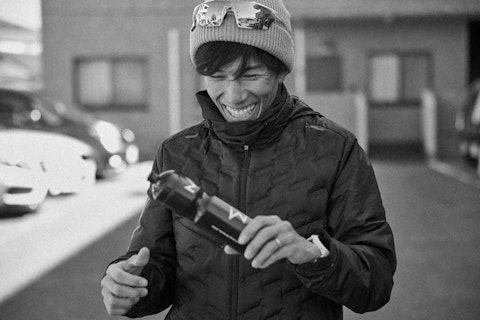
Suzuki got his chance to live that glory his third year of university when his coached named him to Hakone’s most competitive stage, 23.2 km against the best from every rival school. Almost totally unknown, he outran them all to win the stage.
From then on Suzuki told himself, “If I keep running after college, I want to race the marathon.” After graduating he joined Fujitsu, one of Japan’s top producers of Olympians. His sole focus became the marathon.
The run that showed what was to come happened at the September 2019 Marathon Grand Championship, Japan’s marathon trial event for its home ground Olympics. Suzuki cleared the difficult qualifying standards at the last second and ran the MGC as just the third marathon of his career.
“I didn’t think I was going to qualify for it, but when I did I wanted to run the best I could. I could tell the other athletes were a lot better.”
Suzuki is humble when he talks about that race, but his running was at another pole entirely. Off a slow first 15 km in the late summer heat, without warning he dropped in a 14:48 5 km split, 2:04 marathon pace from 15 to 20 km to cut the chase group behind breakaway leader Shitara down to four. At 37 km he attacked again, taking the lead and once more redrafting the architecture of the MGC. He ultimately finished 7 , but there was no question in anyone’s mind about who had set up and defined the terms of the race.
“If I’d been running to win then I think it would have gone differently. I did make the moves, but if I’d really wanted to go to the Tokyo Olympics then I should have saved it for the very end like the guys who made the top three. My feeling at the time was more that I wanted to put on a little showcase and get in a few body blows that would leave some bruises.”
Suzuki’s bold moves paid off, not only for him. His senior Fujitsu teammate Shogo Nakamura won the MGC and went on to represent Japan at the Tokyo Olympics. The way Nakamura won stayed burned into Suzuki’s mind.
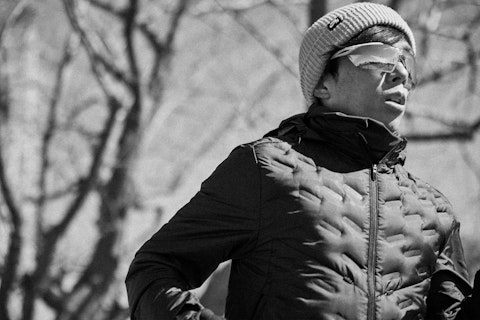
A year and a half on from that day, Suzuki stood on the starting line at Lake Biwa. Through the early stages he waited deep in the pack as the race progressed under control, ignoring premature feints from the competition and holding back until it was time to make the race his. Missing his drink at 36 km, he took advantage of other athletes’ distraction with their own drink bottles to release everything he had stored up. Over the final 5 km he split 14:23, world record pace, bettering his own marathon best by more than five minutes as he rewrote the national record.
The elite of the Japanese marathon fiefdom were there to see it, and from how strong and fresh he looked they could all see how much more he still had the potential to do.
“The strategy we planned was that when I took my shot, it would be the only one I’d take. Just like Nakamura at the MGC.”
Even after becoming the best that Japan has produced, Suzuki keeps searching for how to achieve the perfect marathon. “It’s not a distance you can do over and over in one year, so the value of the experience you gain from each marathon is very high. It’s almost impossible to do exactly the same preparation every time, so it’s always a trial and error process. A lot of things go wrong, and I keep making some of the same mistakes. But I feel like that’s the route to things gradually coming together.”
The current goal is a place on Japan’s team for the 2022 Oregon World Championships, with a 2024 Olympic spot on the horizon beyond that. The Tokyo Marathon is the key to setting all that in motion. As the national record holder he faces attention and expectations to which he’s not accustomed, but his fire is still burning quietly inside, waiting to be turned free.
Kengo Suzuki’s parting words are few but resonant.
“The only thing in which I can lose myself, and the thing that shines out above all else, is running.”
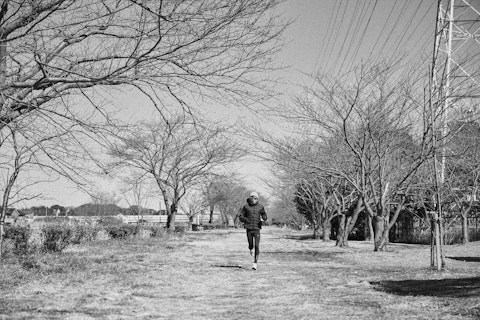

Words by Mika Tokairin with Brett Larner | Photos by Kaoru Fukui